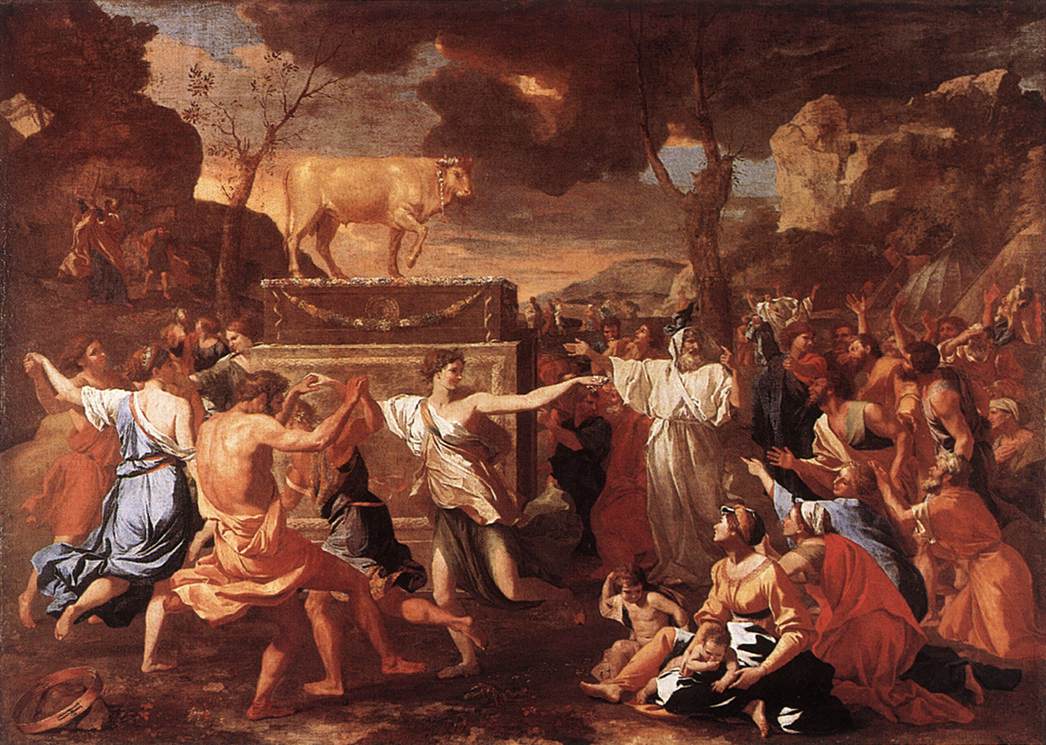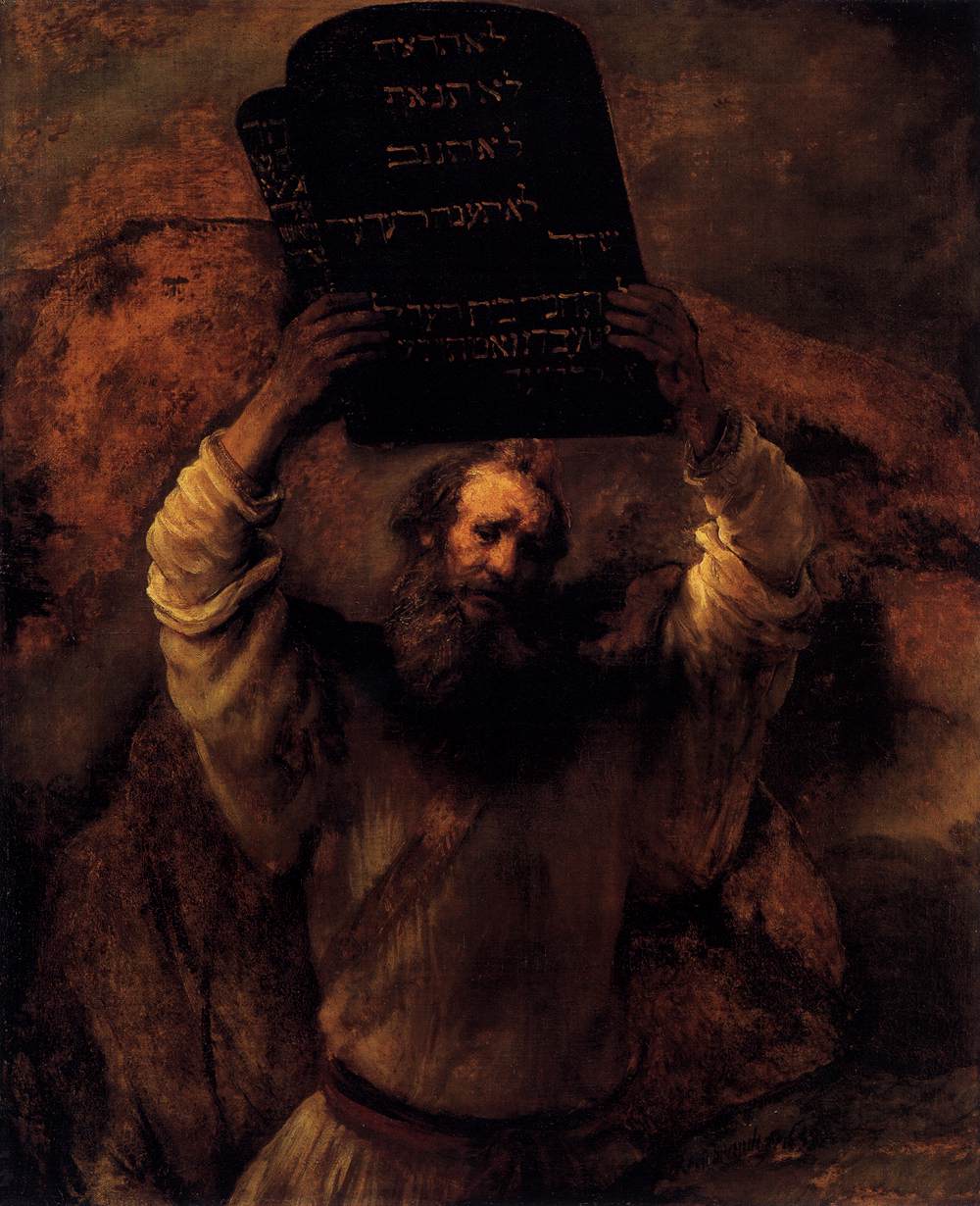This is the third part of our discussion on Deuteronomic Theology. You can read the first and second discussion posts here:
Deuteronomic Theology Part I (Deuteronomic Theology):
Deuteronomic Theology Part II (Deuteronomic History):
http://look-ing-up.blogspot.com/2019/03/deuteronomic-history-vic-jethro-rachmadi.html
Let us open to Deuteronomy 4:15-34
Covenental life is a central topic in the lives of chosen people, and it is an important basis in Deuteronomy. In this part, we will discuss what God means by a covenant. It is important for us to explore this concept repetitively because we tend to extreme our relationship to either side of the poles. A covenant is a covenantal relationship, which involves two or more parties, consisting of both relational and covenantal aspects. Yet we often separate these two concepts in our daily application. When we sign a contract, we assume that both parties do not have any personal relationship. A personal relationship for us consists of freedom and spontaneity and is absent from regulated rules jotted down on a written contract. But the Bible says that a covenant transcends this narrow category. For in Deuteronomy, we see that our relationship with God is so intimate and private, and yet our demands exceed those of a professional contract. Therefore, we must understand our relationship with God along with its complexity.
Moses used three pictures to show this concept clearly. We always connote our relationship with God with love and faithfulness, but in this part of the scripture, we see jealousy, perversion (idolatry), and consuming fire. Through these three points, we will discuss more in depth about our relationship with God.
JEALOUSY
Richard Dawkins claimed that Christianity must be disposed of, because of this annoying "fictional" character described in Deuteronomy 4:21-24. Not only is He a jealous character, but He takes pride in His jealous attribute. Before we move on, we have to be able to differentiate between jealousy and envy. To envy is to covet (egoistic), but to be jealous is to be possessive (also egoistic and self-centered). The difference is that to envy, is to covet something that others own, but to be jealous is to be possessive towards what one owns. Therefore, the Hebrew and Greek Bible use the terms envy and jealousy interchangeably (Hebrew: qannah/qinnah; Greek: zelos).
Is God's jealousy here the same as envy then? Did Dawkins speak of truth? Is God depicted as an annoying character here? Absolutely not. There is a distinct difference in the Hebrew language. Our differentiating tool is phenomena, while the Hebrew's differentiating tool is in who does it. Though based on the same root word, qinnah is used specifically for human (mentioned 32-44 times in the Bible), while qannah is for God (mentioned 6 times in the Bible). The Bible's differentiating tool is not in its phenomena or the jealousy level a person possesses but in the doer. Therefore, we ought not to view God's jealousy as a negative concept. After all, the positivity in our jealousy is very evident. What kind of jealousy is positive? As parents, when we see our children behaving badly, we rise to anger, which is caused simply by our love towards them. It is easier to explain this in the English language because they have the terms for and against. For instance, are you for or against the nuclear plant? When we are jealous of a person, what is important is to ask the question of whether we are angry with that person, or angry for that person.
Anger is not a sin in and of itself, for anger does not collide with a relationship. If you are engaged in a relationship, you will experience anger. If you have never been angry with a person, it means you do not have any relationship with him. The opposite of love is not anger nor hate, but apathy.
Why then does the picture of anger in our daily life so different than the anger Bible depicts? Because we have never seen true love. Being in our sinful nature, our love is stained with self-centeredness, as we love others to fulfill our personal needs. We are often more hungry than being in love. We could love something immensely, but only for us to consume. If you truly love a tree, you would not loot its twigs, fruits, and wood, but you would water it. Therefore, it is impossible for us human to create positive jealousy, because our anger is always because of the object, and not for the object. We rise to anger because their sins humiliate and inflict us.
Thus, the classification is not between envy and jealousy, but in the doer. The aspect of corruptness is ever present when we are jealous, not because there is absolutely no aspect of angry for the object, but because there is always an aspect of anger because of the object.
Yet God's jealousy purely consists of anger for those whom He loves. We must be thankful if our relationship with God is full of God's anger because it only shows how much He cares and loves you. CS Lewis wrote that a God who is never satisfied with you only shows that He is a God who loves you, like an artist who considers his art always lacking and in need of correction. God is never satisfied. Demanding a God who could be satisfied is demanding Him to stop loving us.
Now you have seen how positive God's jealousy is. The drop rate in a theological seminary is the highest among all schools. In my previous accreditation, my professor told me that the drop rate of 20-25% in a theological seminary is very common. But in our theological seminary, there must usually be a mistake or a sin which a dropped out student committed during his study, and very rarely due to health issue problem. And every time there was a student being dropped out, the other students would weep, not because of his sins, but our sins. It did not matter what the dropped out student did, what mattered most was the fact that we were aware of his sins since the beginning and refused to confront him. And we did not confront him not because we fear to offend him, but because we simply did not care. Or frankly speaking, our care towards our own feelings mattered more than our care towards him.
Hence, God's jealousy towards men is a significant declaration. God is very committed to our well-being. This is the first point.
IDOLATRY
This second point is mentioned frequently throughout verses 15-23. But before we dig deeper into those verses, we have to set one thing straight: verses 16-19 are especially interesting, this part reminds us of what idolatry is. The purpose of these verses is to show what could be considered gods, and the answer is everything! The purpose of these verses is not to instruct what we should not create, but to instruct that we should not create everything from A to Z. Verse 19 gives an interesting definition, "an idol is not just everything, but something that is God-given". Meaning, an idol is actually something good, because all things God-given is good. In fact, it is a good thing that could be transformed into an idol, and the better it is, the better the idol it will make.
For example, in disciplining your child, you remind them not to play video games for hours so that they would be the number one in their class and become an achiever. Yet, according to the Bible, this aspiration to be the number one and to be an achiever could even be a better idol than hours playing the video game. When your child is all grown up, performance and ranking become his life's goal, by doing so, he abandons his wife and children, he belittles relationships that do not benefit him, all these for the sake of his performance. Because when he plays video games, everyone around him despises his action, and he knows himself that his addiction to video games is bad. Contrarily, by becoming a workaholic, many companies would contact him, offering him jobs. Let this be a reminder for us all that idolatry is not in the object, but about where we rank that object within our hearts. Augustine introduced the idea of ordo amoris (the order of love). If we place the object we love higher than God in our ordo amoris, and if it fills our life, replacing God's position, the object has become our idol. Read more about ordo amoris here: http://look-ing-up.blogspot.com/2017/09/a-double-victory.html.
Idolatry is when we consider an object to be most effectual in our lives, including most effectual in creating grief and resentment. Your idol is not only something that delivers you the most joy, but also something that delivers you the most resentment. Your idol is the most effectual object in your life as it places the highest ranking in your ordo amoris.
Let us open to Deuteronomy 4:15-34
Covenental life is a central topic in the lives of chosen people, and it is an important basis in Deuteronomy. In this part, we will discuss what God means by a covenant. It is important for us to explore this concept repetitively because we tend to extreme our relationship to either side of the poles. A covenant is a covenantal relationship, which involves two or more parties, consisting of both relational and covenantal aspects. Yet we often separate these two concepts in our daily application. When we sign a contract, we assume that both parties do not have any personal relationship. A personal relationship for us consists of freedom and spontaneity and is absent from regulated rules jotted down on a written contract. But the Bible says that a covenant transcends this narrow category. For in Deuteronomy, we see that our relationship with God is so intimate and private, and yet our demands exceed those of a professional contract. Therefore, we must understand our relationship with God along with its complexity.
Moses used three pictures to show this concept clearly. We always connote our relationship with God with love and faithfulness, but in this part of the scripture, we see jealousy, perversion (idolatry), and consuming fire. Through these three points, we will discuss more in depth about our relationship with God.
JEALOUSY
Richard Dawkins claimed that Christianity must be disposed of, because of this annoying "fictional" character described in Deuteronomy 4:21-24. Not only is He a jealous character, but He takes pride in His jealous attribute. Before we move on, we have to be able to differentiate between jealousy and envy. To envy is to covet (egoistic), but to be jealous is to be possessive (also egoistic and self-centered). The difference is that to envy, is to covet something that others own, but to be jealous is to be possessive towards what one owns. Therefore, the Hebrew and Greek Bible use the terms envy and jealousy interchangeably (Hebrew: qannah/qinnah; Greek: zelos).
Is God's jealousy here the same as envy then? Did Dawkins speak of truth? Is God depicted as an annoying character here? Absolutely not. There is a distinct difference in the Hebrew language. Our differentiating tool is phenomena, while the Hebrew's differentiating tool is in who does it. Though based on the same root word, qinnah is used specifically for human (mentioned 32-44 times in the Bible), while qannah is for God (mentioned 6 times in the Bible). The Bible's differentiating tool is not in its phenomena or the jealousy level a person possesses but in the doer. Therefore, we ought not to view God's jealousy as a negative concept. After all, the positivity in our jealousy is very evident. What kind of jealousy is positive? As parents, when we see our children behaving badly, we rise to anger, which is caused simply by our love towards them. It is easier to explain this in the English language because they have the terms for and against. For instance, are you for or against the nuclear plant? When we are jealous of a person, what is important is to ask the question of whether we are angry with that person, or angry for that person.
Anger is not a sin in and of itself, for anger does not collide with a relationship. If you are engaged in a relationship, you will experience anger. If you have never been angry with a person, it means you do not have any relationship with him. The opposite of love is not anger nor hate, but apathy.
Why then does the picture of anger in our daily life so different than the anger Bible depicts? Because we have never seen true love. Being in our sinful nature, our love is stained with self-centeredness, as we love others to fulfill our personal needs. We are often more hungry than being in love. We could love something immensely, but only for us to consume. If you truly love a tree, you would not loot its twigs, fruits, and wood, but you would water it. Therefore, it is impossible for us human to create positive jealousy, because our anger is always because of the object, and not for the object. We rise to anger because their sins humiliate and inflict us.
Thus, the classification is not between envy and jealousy, but in the doer. The aspect of corruptness is ever present when we are jealous, not because there is absolutely no aspect of angry for the object, but because there is always an aspect of anger because of the object.
Yet God's jealousy purely consists of anger for those whom He loves. We must be thankful if our relationship with God is full of God's anger because it only shows how much He cares and loves you. CS Lewis wrote that a God who is never satisfied with you only shows that He is a God who loves you, like an artist who considers his art always lacking and in need of correction. God is never satisfied. Demanding a God who could be satisfied is demanding Him to stop loving us.
Now you have seen how positive God's jealousy is. The drop rate in a theological seminary is the highest among all schools. In my previous accreditation, my professor told me that the drop rate of 20-25% in a theological seminary is very common. But in our theological seminary, there must usually be a mistake or a sin which a dropped out student committed during his study, and very rarely due to health issue problem. And every time there was a student being dropped out, the other students would weep, not because of his sins, but our sins. It did not matter what the dropped out student did, what mattered most was the fact that we were aware of his sins since the beginning and refused to confront him. And we did not confront him not because we fear to offend him, but because we simply did not care. Or frankly speaking, our care towards our own feelings mattered more than our care towards him.
Hence, God's jealousy towards men is a significant declaration. God is very committed to our well-being. This is the first point.
 |
| The Adoration of the Golden Calf, by Nicolas Poussin |
IDOLATRY
This second point is mentioned frequently throughout verses 15-23. But before we dig deeper into those verses, we have to set one thing straight: verses 16-19 are especially interesting, this part reminds us of what idolatry is. The purpose of these verses is to show what could be considered gods, and the answer is everything! The purpose of these verses is not to instruct what we should not create, but to instruct that we should not create everything from A to Z. Verse 19 gives an interesting definition, "an idol is not just everything, but something that is God-given". Meaning, an idol is actually something good, because all things God-given is good. In fact, it is a good thing that could be transformed into an idol, and the better it is, the better the idol it will make.
For example, in disciplining your child, you remind them not to play video games for hours so that they would be the number one in their class and become an achiever. Yet, according to the Bible, this aspiration to be the number one and to be an achiever could even be a better idol than hours playing the video game. When your child is all grown up, performance and ranking become his life's goal, by doing so, he abandons his wife and children, he belittles relationships that do not benefit him, all these for the sake of his performance. Because when he plays video games, everyone around him despises his action, and he knows himself that his addiction to video games is bad. Contrarily, by becoming a workaholic, many companies would contact him, offering him jobs. Let this be a reminder for us all that idolatry is not in the object, but about where we rank that object within our hearts. Augustine introduced the idea of ordo amoris (the order of love). If we place the object we love higher than God in our ordo amoris, and if it fills our life, replacing God's position, the object has become our idol. Read more about ordo amoris here: http://look-ing-up.blogspot.com/2017/09/a-double-victory.html.
Idolatry is when we consider an object to be most effectual in our lives, including most effectual in creating grief and resentment. Your idol is not only something that delivers you the most joy, but also something that delivers you the most resentment. Your idol is the most effectual object in your life as it places the highest ranking in your ordo amoris.





